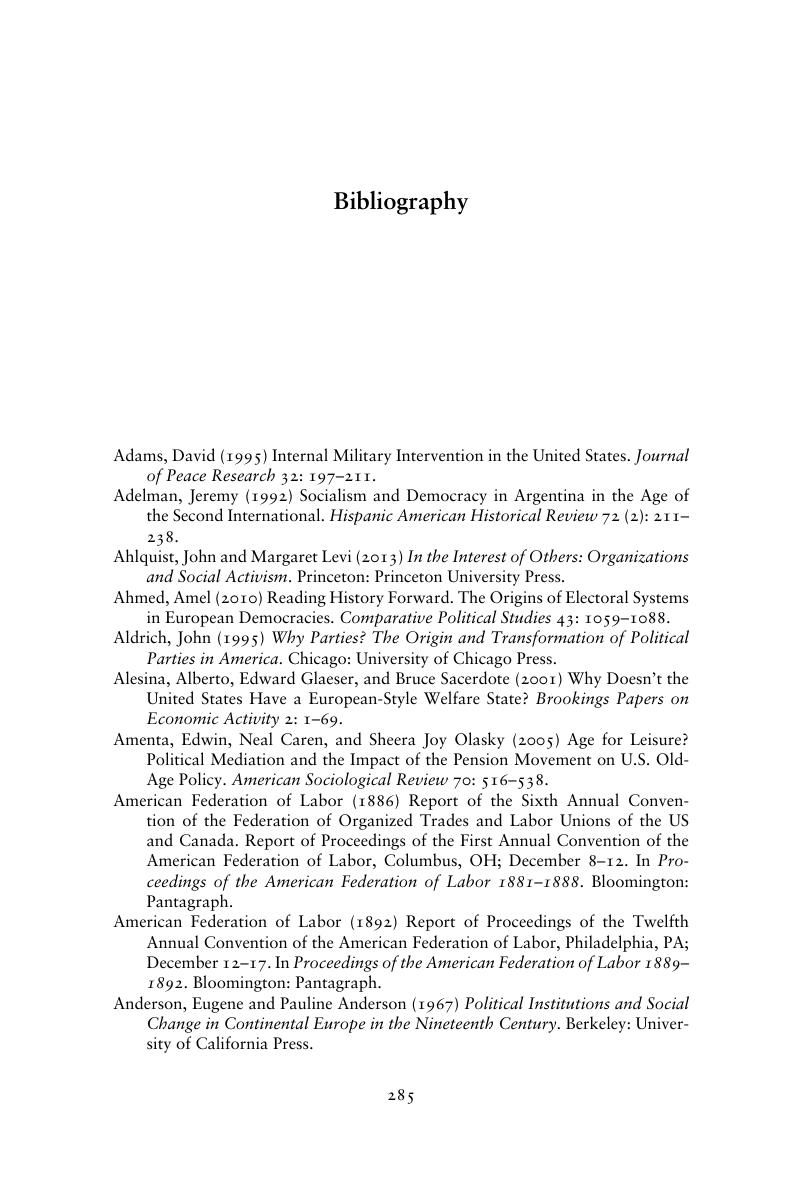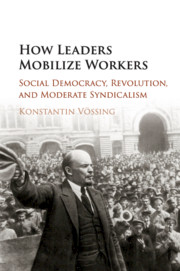Book contents
- How Leaders Mobilize WorkersSocial Democracy, Revolution, and Moderate Syndicalism
- How Leaders Mobilize Workers
- Copyright page
- Dedication
- Contents
- Figures
- Tables
- Acknowledgments
- Abbreviations
- 1 Introduction
- 2 Outcomes
- 3 Environments
- 4 Agency
- 5 Choices
- 6 Consequences
- 7 Conclusion
- Endnotes
- Bibliography
- Index
- References
Bibliography
Published online by Cambridge University Press: 05 July 2017
- How Leaders Mobilize WorkersSocial Democracy, Revolution, and Moderate Syndicalism
- How Leaders Mobilize Workers
- Copyright page
- Dedication
- Contents
- Figures
- Tables
- Acknowledgments
- Abbreviations
- 1 Introduction
- 2 Outcomes
- 3 Environments
- 4 Agency
- 5 Choices
- 6 Consequences
- 7 Conclusion
- Endnotes
- Bibliography
- Index
- References
Summary

- Type
- Chapter
- Information
- How Leaders Mobilize WorkersSocial Democracy, Revolution, and Moderate Syndicalism, pp. 285 - 306Publisher: Cambridge University PressPrint publication year: 2017



